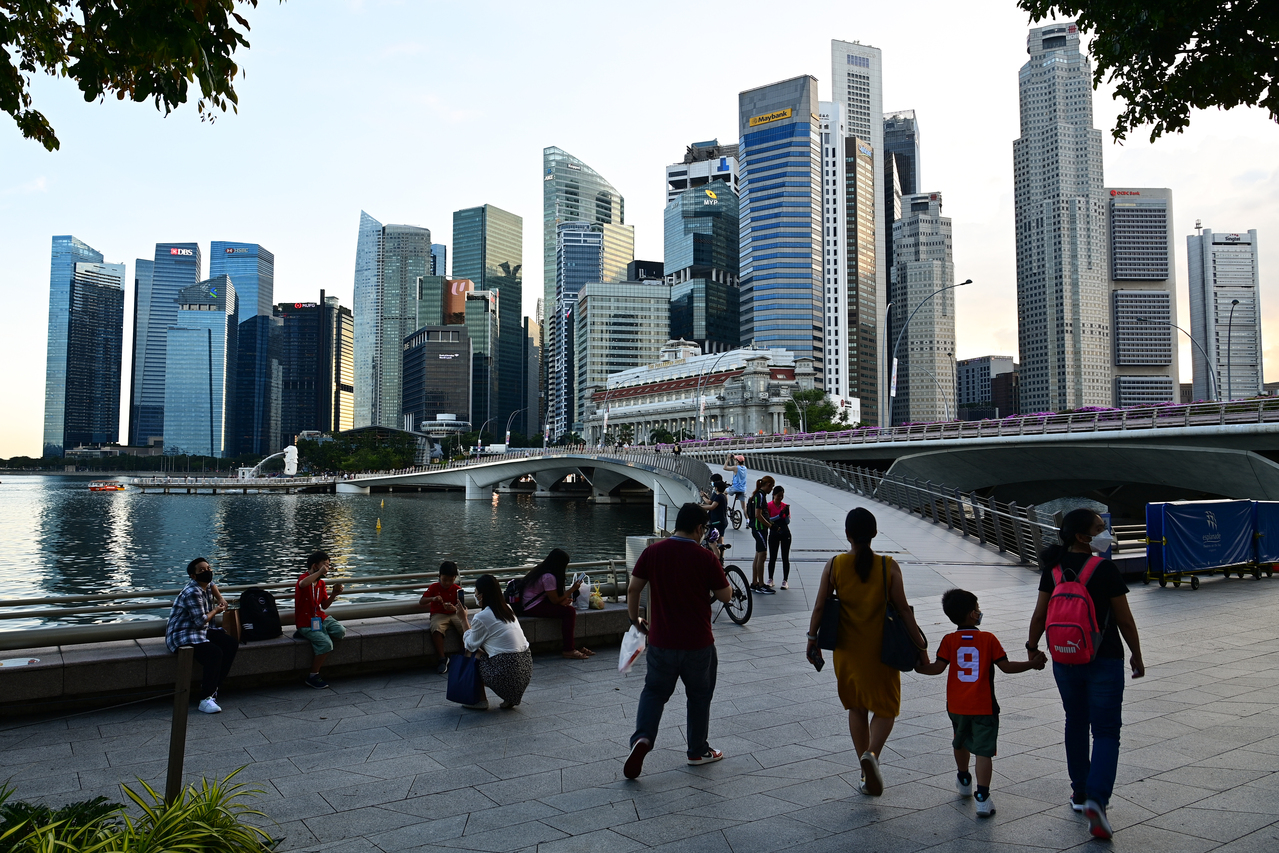S'pore does not expect recession or stagflation next year but significant risks remain: Alvin Tan
Sign up now: Get ST's newsletters delivered to your inbox

Singapore's core inflation has been picking up pace, coming in at 3.6 per cent year on year in May.
PHOTO: ST FILE
SINGAPORE - The global economic environment has become very challenging and the risk of further deterioration is high, but Singapore is likely to avoid a major downturn or runaway inflation for now, said Minister of State for Trade and Industry Alvin Tan.
"At this stage, we do not see or expect a recession or stagflation in 2023. Nonetheless, risks in the global economy remain significant," Mr Tan told Parliament in response to questions from fellow MPs.
He said that with the Russia-Ukraine conflict entering its fifth month, and economies such as China still grappling with the Covid-19 pandemic, a small and open economy such as Singapore cannot be insulated from such external developments.
Two years after Singapore endured its worst recession, Mr Tan said growth in 2022 is likely to come within the lower half of the Ministry of Trade and Industry's (MTI) forecast range of 3 per cent to 5 per cent.
However, economic expansion may moderate further next year, he added.
"Our economy is facing significant headwinds, including a global economic slowdown and strong external inflationary pressures."
He said protracted global supply disruptions, due in large part to the war in Europe and the pandemic, have fuelled inflationary pressures globally, especially through their impact on energy and food commodity prices.
Risks of stagflation, where growth is dragged by surging inflation, or odds of an outright recession may rise if the conflict escalates further and global supply chains are disrupted more severely, Mr Tan added.
In addition, financial market instability from a faster than expected tightening of monetary policy in advanced economies, and the trajectory of the Covid-19 pandemic, can also affect the global economic environment negatively, he noted.
Singapore's core inflation, which excludes accommodation and private transport, has been picking up pace, coming in at 3.6 per cent year on year in May, from 3.3 per cent in April and 2.5 per cent in the first quarter of the year.
Headline inflation, which includes private transport and accommodation costs, rose to 5.6 per cent year on year in May, from 5.4 per cent in April and 4.6 per cent in the first quarter.
"Inflation is likely to pick up further in the coming months but should start to moderate towards the end of the year if external inflationary pressures recede," Mr Tan said.
For the year as a whole, core inflation is expected to average 2.5 per cent to 3.5 per cent, while headline inflation is projected to average 4.5 per cent to 5.5 per cent, he said.
"Notwithstanding rising inflation, economic activity in Singapore has remained resilient thus far."
In the first quarter of 2022, Singapore's gross domestic product grew by 3.7 per cent on a year-on-year basis. Non-oil domestic exports and industrial production remained healthy, while retail, and food and beverage sales volumes have increased, reflecting continued recovery from the pandemic, Mr Tan noted.
"For the rest of the year, the recovery in international travel and domestic demand with the lifting of Covid-19 restrictions will help to mitigate some of the weaker external demand."
Mr Tan said more help has come from measures taken by the Government.
The Monetary Authority of Singapore has tightened monetary policy three times since October last year, resulting in the appreciation of the Singapore dollar, which will help to temper imported inflation.
The strengthening of the Singapore dollar has also moderated the impact on businesses from higher domestic lending rates that have risen in tandem with global interest rates.
The $1.5 billion support package announced last month will also provide immediate and targeted relief to lower-income and vulnerable Singaporeans, who are disproportionately affected by higher prices.
"Finally, MTI will continue to attract investments and foster new growth engines. Strong job creation and wage growth are the best ways to combat inflation.
"I am confident that by working closely with businesses and Singaporeans, we will be able to weather this storm, as we did with the Covid-19 pandemic," Mr Tan said.


